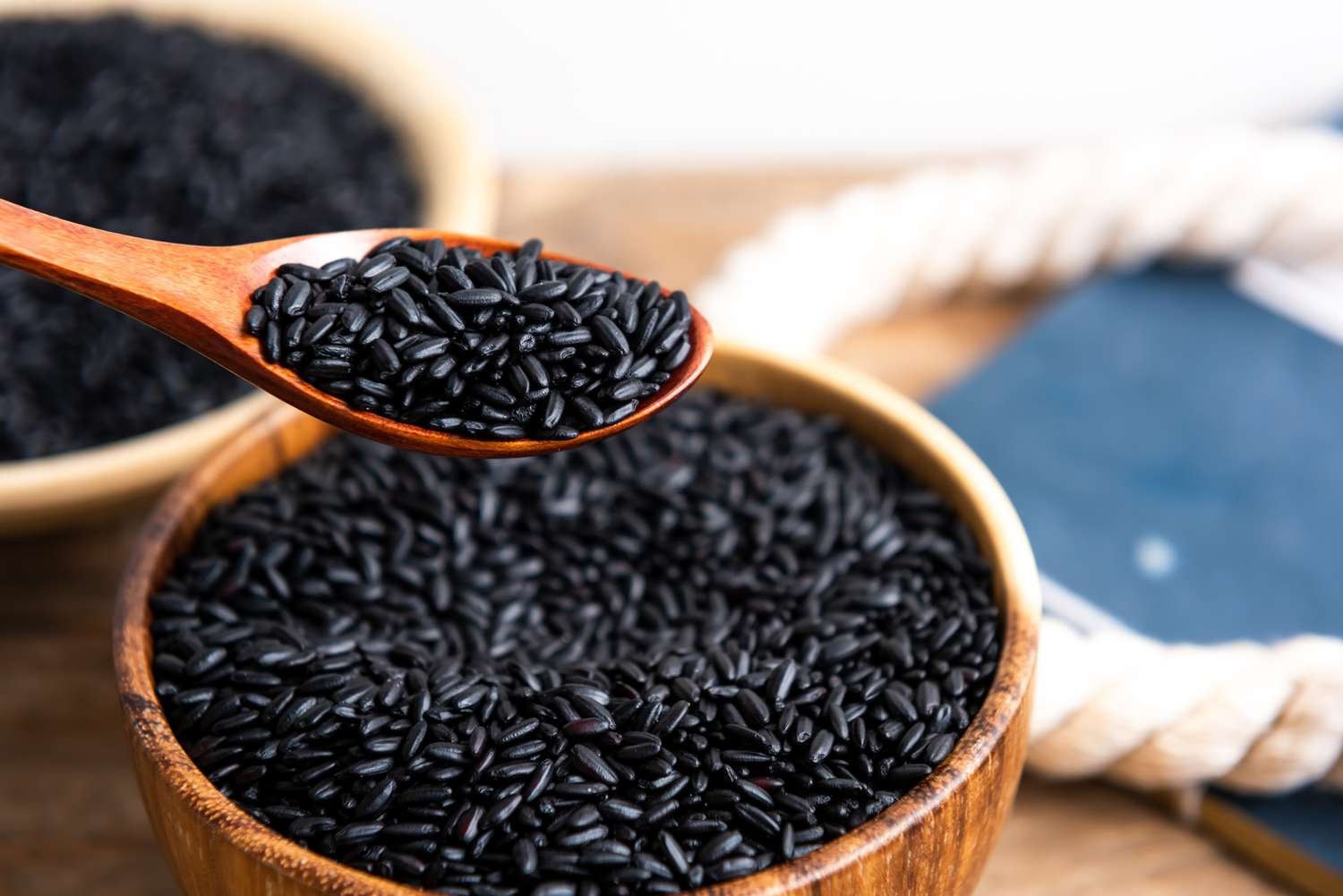Did you know that white rice is high in carbohydrates and can cause a sudden spike in glucose levels, making it a ‘not-so-good’ option for diabetic patients? However, not all kinds of rice are ‘not healthy’ for diabetics. One such rice is Black rice.
Black rice is called “black” because of its deep black-purple colour. Its low GI score of 42.3 and high fibre content (three times more than white rice) make it a favourable pick for diabetics. Read further to understand if black rice is good for diabetes.
Black Rice: Nutrition Facts
Rich in fiber, antioxidants, vitamins, and minerals, black rice is considered highly nutritious. According to the US Department of Agriculture, 100g of uncooked black rice contains:
- Protein – 9g
- Carbohydrates – 75.6g
- Fat – 3.33g
- Fiber – 2.2g
- Iron – 2.4 mg
- Sugar – 0g
- Fatty acids (both saturated and trans fat) – 0g
- Cholesterol – 0g
Black rice contains no sugar. Though it is high in carbs, it gets digested slowly and does not cause an increase in your blood sugar levels. Diabetic patients must consider adding black rice to their diet.
Black Rice Benefits for Diabetes
- Black rice prevents sudden spikes of glucose in the blood.
- It makes you feel full and reduces the urge to snack due to its rich fibre content.
- Anthocyanins in black rice act against free radicals and help diabetics fight inflammation.
- Its antioxidant properties reduce oxidative stress caused due to high blood sugar levels.
Ways to Consume Black Rice for Diabetics
The process of cooking and consuming black rice is similar to white rice. However, black rice takes a little longer to cook.
- Replace white rice with black rice and eat it with dal and curry.
- Use it to prepare purple kheer (a popular dish in Manipur).
- Make black rice bowls with your favourite veggies.
- You can also make black rice cakes and noodles.
Best Time to Consume Black Rice
The best time to consume black rice for diabetes is in the mornings and in the afternoon. As black rice is digested slowly by the human body, eating it in the evenings may lead to indigestion and bloating.
Find out how grains like barley, wheat, and quinoa can benefit diabetes management. Learn which grains and pulses support healthy blood sugar levels
Risks of Overconsumption of Black Rice
Overconsumption of black rice by diabetic patients may lead to gastrointestinal problems like gas, indigestion, bloating, and upset stomach. The high fibre content present in black rice makes it difficult to digest. Hence, always consume black rice in limited quantities.
Though black rice is a beneficial addition to a diabetic diet, the amount to be consumed differs from person to person based on their digestive capacity. Consult your doctor to understand the quantity of black rice you can safely include in your daily meals.
Other Health Benefits of Black Rice
Its rich vitamin, mineral, and antioxidant content make black rice good for overall health. Other black rice benefits for diabetes are:
- It improves cholesterol and triglyceride levels that boost heart health.
- Black rice contains lutein and zeaxanthin that protect your eyes from free radical and blue-ray damage.
- It has powerful anti-inflammatory and antioxidant properties that protect your liver and kidneys from injury.
Don’t Have Time To Read?
- Black rice’s GI score is low, and it has vitamins, minerals, fibre, and antioxidants that are highly beneficial for people suffering from diabetes.
- It is rich in fibre and makes you feel full, reducing the urge to snack, thus assisting in weight loss.
- The process of cooking and consuming black rice is similar to white rice.
- It is wise to consume black rice before late afternoon to avoid indigestion and gas.
- Rich in vitamins and minerals, black rice is good for overall health.
Friendly Asked Questions
Which type of rice is best for diabetic patients?
For diabetic patients, it is essential to eat a type of rice that does not cause a sudden spike of glucose in the blood. Hence, rice with low GI scores like black rice, brown rice, and parboiled rice are good for diabetics.
What is the Glycemic Index (GI) of Black rice?
Black rice has a low glycemic index of 42.3 and it contains essential vitamins and nutrients. It is rich in fibre, protein, antioxidants, and minerals, making it a healthy addition to a diabetic diet.
Does black rice raise blood sugar levels?
No, black rice will not cause sudden spikes in blood sugar levels. Black rice has a low glycemic index and is rich in fibre that lowers blood glucose levels.
Can we eat black rice daily?
It is not recommended to eat black rice daily. Black rice has high fibre content and is digested slowly by the human body. Eating black rice every day may lead to indigestion and bloating. Hence, consider eating black rice once or twice a week for its nutritional benefits.
Is black rice good for kidneys?
Yes, black rice is beneficial for kidneys. It has rich antioxidant and anti-inflammatory properties that protect your liver and kidneys from injuries.
